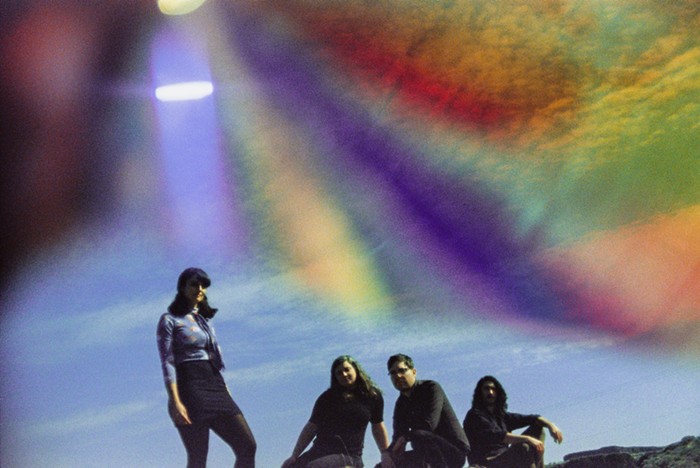Every experimental musician should hope to end up like Frédéric Chopin (1810–1849), whose finger-breaking études redefined what the piano could do. A respected though reclusive radical, Chopin fashioned a dreamy, violent, ethereal, poetic sound world that not only is beloved but remains uncompromised.
Oddly, the frail French-Polish composer did not align himself with the bad boys of his day like Berlioz or Liszt. Rather, Chopin considered his music a modest extension of his idols, Bach, Mozart, and Beethoven. Yet sometimes, unwitting radicals delve deeper than self-trumpeting innovators. In his series of nocturnes, Chopin took a rather humble genre established by Irish composer John Field (1782–1837) into braver, spookier territory rife with daring detours and surprise endings. When grouped together, it can be hard to discern where one nocturne begins and another ends.
While hearing pianist Mark Salman sally through Chopin's first ballade earlier this month, I realized that the composer was also writing swaggering, heroic tone poems of symphonic breadth for the piano long before Richard Strauss—and without succumbing to Liszt's eventual weakness for bombastic schlock. Chopin is elegant. Before playing the ballade, Salman remarked, "His music sounds improvised" and added that Chopin's sure sense of craft gives the music a vibrant, appealing shape.
Salman proved himself a dazzling performer at the first of his three recitals honoring Chopin's bicentennial. Even a sunny, lightweight piece like the Grande Valse Brillante op. 18 benefited from the pianist's immaculate touch, which at times was delicate enough to evoke tiny bells tapped through felt. I was bowled over by how Salman conjured the grandiose—and aggrieved—pride in Chopin's first ballade. And the two op. 10 études he played were a knockout; I wanted more. Salman introduced them as "still the most difficult things out there," yet the famed "Black Key" étude sparkled and sounded easy.
The two remaining concerts in the series (Fri May 21 and Fri June 4, University Christian Church, 4731 15th Ave NW, 7:30 pm, $25/$15 students and seniors) mix Chopin favorites (waltzes, mazurkas) with heavier, hardier pieces like the "Funeral March" sonata no. 2 op. 35 and the Ballade no. 4. Salman happily advocates for the radical side of the composer. With a bit of glee, he reminded us that "Chopin, in 1830, was doing things as tonally unhinged way before Wagner's Tristan und Isolde in 1857." Today, Chopin still sounds unhinged—and beautiful.
If you go, I recommend spending one half of the concert sitting close to the piano to savor how Salman balances the inner voices (quickie contrapuntal figures, transitional chords, etc.). Then, sit from a distance to hear Chopin become deliciously atmospheric amid the venue's spacious acoustics. ![]()


















